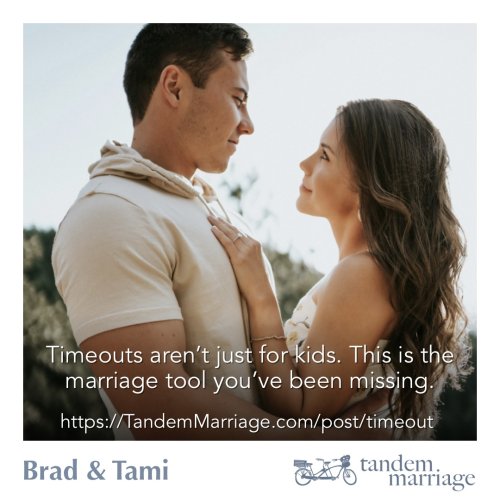If you have been married for any time at all, you have become keenly aware of the differences between you and your spouse. I am talking about the kind of differences that drive you both bonkers. For example, maybe one of you makes decisions quickly and decisively and the other makes them slowly and methodically. This kind of thing can drive you both crazy. Or, maybe one of you gets your feelings hurt easily and the other never seems to feel anything at all, as if nothing really matters. Maybe one of you is very punctual and respectful of other's time and the other one of you seems to have little concept of time and is always running late. Have I nailed at least one of your differences yet? There are certainly many more possibilities.
The truth is that we all have differences between ourselves and our spouses. Some of those differences are fairly easy to roll with and some of them are not. And the problem is NOT what you think it is. The problem is not with your spouse.
The problem most often lies with how we view or perceive these differences. We can view these differences from our own selfish perspective (as in "I don't like how this effects me") or we can view them from a team perspective (as in "Do our differences bring needed balance to our marriage?"). If we don't view these differences in a manner that works best for the team (our marriage), then we are not doing the team (or ourselves, for that matter) any favors at all.
Let me break this down for you. In our marriage, I am the one who makes decisions quickly and decisively and Tami is the one who makes decisions slowly and methodically — some of the time. For some choices in our lives, this decision-making process is the exact opposite; I become the slow and methodical one and Tami can make a decision much quicker. And most of the time what we really need is something right in the middle. We need a balance of thinking things through, but not dragging them out. We need to make a decision, but one we can both live with. And here is the beautiful part, this is exactly what our "balance" allows us to do.
We have learned to see our differences as a healthy balance, not a threat to her way of doing things or mine. We have learned to see that we are better together. SO. MUCH. BETTER. And we have learned that if we truly want to be happy together, we need to value the kind of collaboration and compromise brought out by our differences. Each of us must live with an obligation towards collaboration in our marriages.
“Each of us must live with an obligation towards collaboration in our marriage.” ~Brad Miller
More often than not, a husband or wife will view the other one's approach as the problem simply because it is different than what they know. This kind of thinking works fine if you are single — or want to be! Because marriage requires a much deeper level of collaboration and grace than living alone does, as married people we need to adjust our thinking to see the strength in this balance of differences.
Besides, blaming your spouse for any differences is like saying, "Hey, your side of the boat is sinking!" And this is just foolish! If you are in a boat together, your spouse's challenges ARE your challenges. Do you see the point? You simply must learn to appreciate your differences and help each other through them. John Wooden, one of the most famous and revered basketball coaches of all time, put it this way:
“Be most interested in finding the best way, not in having your own way.” ~John Wooden
Well said!
If you would love to learn more about being a team player in your marriage, please consider buying the book we wrote for that purpose, called Ready to Surrender. For a limited time, you will find a 1/2 off promo code at the bottom of the linked page about the book.
Learn More About READY TO SURRENDER

And, the back cover of Ready to Surrender.

DISCUSSION QUESTIONS:
1. Identify a few of the more obvious differences between you and your spouse.
2. In what ways do those differences cause friction in your marriage? Is this because you view your way as the "right way" or the default way? Be honest here.
3. Try to think of one example of how your spouse's differences bring some value and/or balance to your life. Now, challenge yourself to think of more ways in which your differences could bring some needed value or balance to your marriage.
4. Lastly, if you learned to see your spouse's differences as less of a challenge to your way and more of adding value and a healthy balance to your marriage, would that result in less daily friction in your marriage?
---
If you have any comments or questions about this post, please ask us using our contact form linked in the footer below.
By Brad & Tami Miller. Contact us at brad@TandemMarriage.com. Copyright © 2017
Link to: https://tandemmarriage.com/differences





